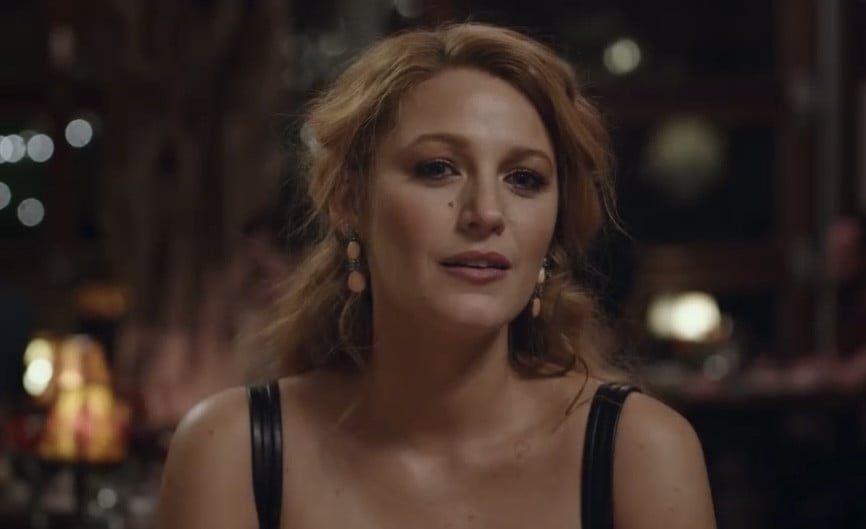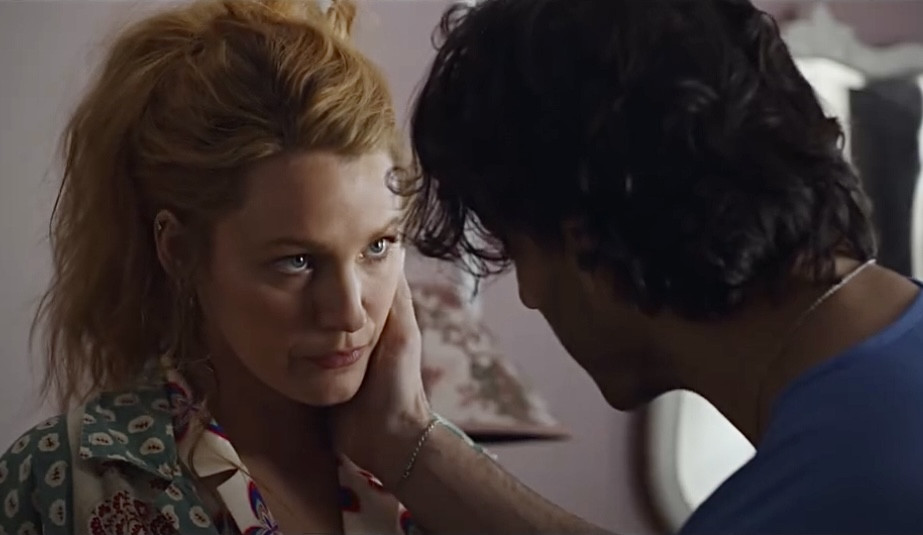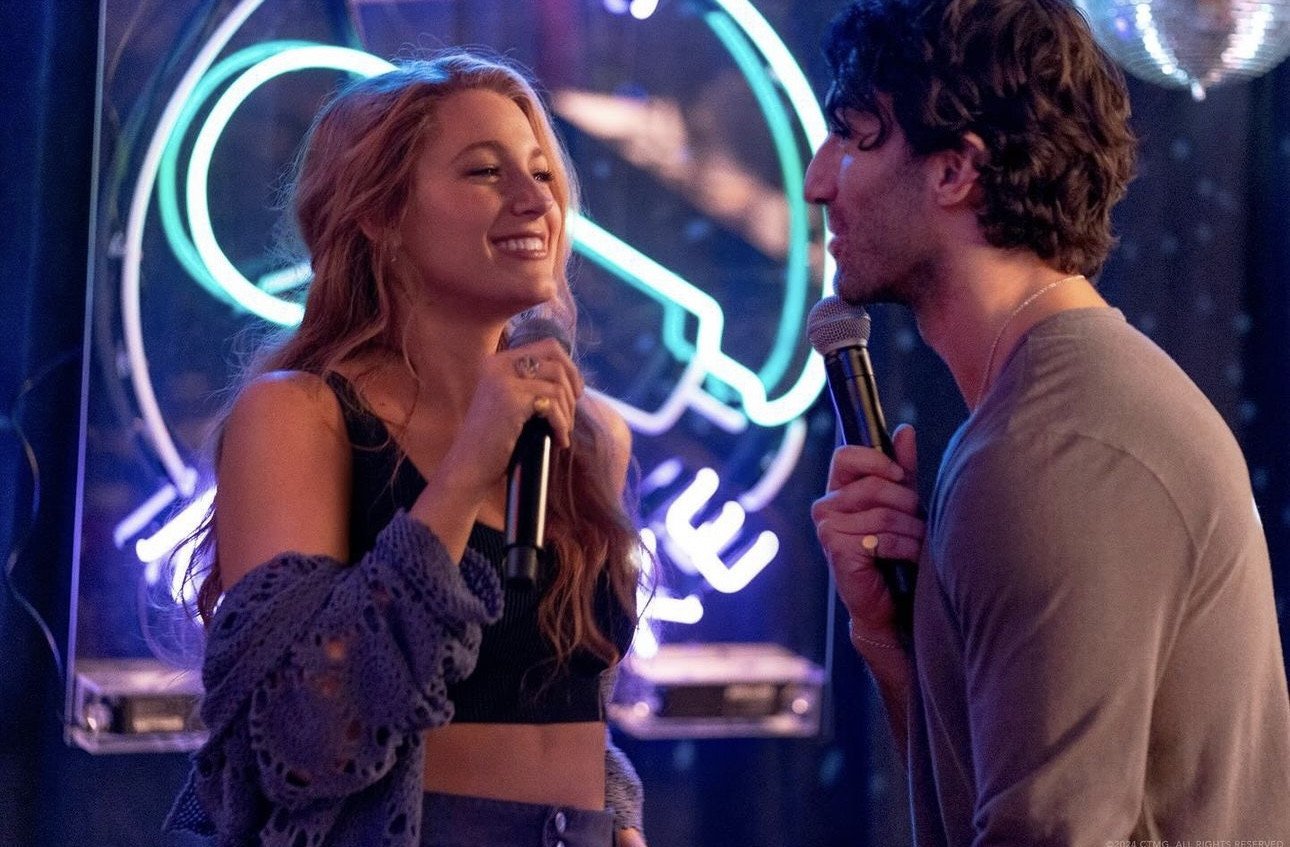
Both flirt with a problematic undercurrent – one that glosses over, if not romanticises, domestic violence
KARACHI:
Walking into the theatre to see It Ends with Us, I was armed with a zero-expectation policy – a wise choice, considering the book by Colleen Hoover, which I read some odd years ago, already left me feeling a tad scammed. I devoured it in one night, tears and all. That’s typically a sign of a great book for me, but as the days wore on and I sat with the story, I started to notice cracks in the facade. The more I thought about it, the more problematic the whole thing seemed.
You’ve likely heard of It Ends with Us if you’ve spent more than five minutes on BookTok (which, for the uninitiated, is the book-lover’s dark alley of TikTok). The novel was recommended by everyone with a Wi-Fi connection and a flare for dramatic declarations. But, as I replayed every scene in my mind, the initial magic fizzled out. Suddenly, I found myself wondering how on earth so many people could be so wrong.
Romanticising red flags and ruffles
The book, and now the film, has always flirted with a problematic undercurrent – one that glosses over, if not romanticises, domestic violence. Marketed as a love triangle involving a young florist named Lily Blossom Bloom (I’m not making this up), a surgeon named Ryle, and her brooding childhood friend Atlas, the story veers dangerously close to portraying abuse in a sympathetic light. Colleen’s writing isn’t just subpar; it’s harmful, particularly for her young, impressionable audience. The romance she promises in both the book and the film’s promotions – aided by Blake Lively’s overly floral fashion choices and her refusal to address the core theme – puts Ryle’s early violent behaviour in a “let’s wait and see” category that no one should find themselves promoting.
Speaking of the film, the big-screen adaptation had all the potential to be great but ended up as one long series of letdowns. First on the list? Casting Blake as Lily. The character was supposed to be a naive 23-year-old redhead. Instead, we get Blake, whose only contributions to the role seem to be a lot of unnecessary lip biting, laughing and dead-eyed “oh”s.
That said, credit where it’s due: the casting team did a bang-up job on the rest of the characters. Isabela Ferrer, who plays a younger Lily, is practically a carbon copy of Blake’s version, down to the mole on her cheek. If you didn’t know better, you’d think they were the same person, just plucked from different timelines.
Blake’s carefree attitude towards the film’s heavy subject matter while promoting the movie is a head-scratcher. As someone who used to be a fan, I’m baffled by how she could tell viewers to “grab your friends and wear your florals” as if this were just another summer romcom. Meanwhile, in interviews, she dodges any serious questions about domestic violence and instead prattles on about costumes and, of course, her husband. It’s hard not to see this as a quick paycheck for her rather than a genuine passion project. What’s unfortunate is that the drama happening off-screen is getting more attention than the film itself, which, if handled properly, could have been a vehicle for a powerful message.
No room for newbies

Now, onto the film’s biggest sin: it’s utterly confusing if you haven’t read the book. There were moments in the movie where I found myself nodding along only because I’d already read the source material. This insider-only knowledge approach alienates anyone who’s walking in blind. Add to that the fact that many key scenes from the book didn’t make the cut, and you’re left with a movie that’s practically unintelligible to the uninitiated.
While the book, with all its flaws, managed to instil a sense of fear whenever Ryle was in Lily’s orbit, the script fails to paint him as the villain he truly is. The first hour plays out like a romcom – boy meets girl, boy charms girl, and so on. But as the story unfolds and Ryle’s traumatic past is revealed, the film takes a misguided turn, trying to make him a more sympathetic character. The goal was for viewers to fall for Ryle just as Lily does, so they’d be just as shocked and horrified when the abuse begins. But the execution is so off-target that the intended impact is lost.
Sabotage through song

I’d also love to have a word with the music supervisor responsible for this mishmash of well-known tunes. There’s a time and place for using popular music in films, but in a story this heavy, it only serves to pull you out of the narrative. Case in point: when young Lily and Atlas share a tender moment, Birdy’s Skinny Love starts playing. I couldn’t take it seriously. And don’t even get me started on Lana Del Rey’s Cherry – which Blake herself fought to include (I wish she hadn’t) – or Taylor Swift’s My Tears Ricochet. Sure, Taylor Swift has her place, but it’s not here, where it jarringly breaks the immersion rather than enhancing it.

If there’s one saving grace in this mess, it’s Justin Baldoni. The Jane the Virgin star not only directed the film but also played Ryle with a depth that almost made me forget the film’s many shortcomings. While Ryle is far from a lovable character, Justin’s portrayal is both chilling and charming, and as I mentioned before, whatever was missing in his character, was more of a script issue than a delivery one. In real life, Justin has been the only cast member who has openly addressed the film’s central issue, promoting it as “a film for all the real-life Lily Blooms.” His performance is one of the few things that make this film worth watching.





